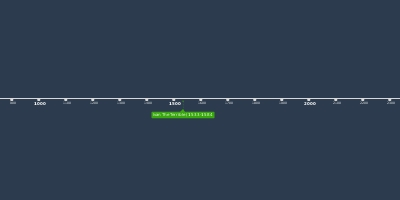mar 6, 1921 - 10th Party Congress (March 1921) Kronstadt Rebellion (March 1921) Alexandra Kollantai (March 1921) "On Party Unity" (March 1921)
Description:
10th Party Congress- war communism along with the civil war and world war I has left economy in shambles
- Workers and farmers despise policies
- Have to deal with the economic side
- Kronstandt occurs at eve of conference
Kronstadt Rebellion
-The sailors, located at the Kronshtadt fortress in the Gulf of Finland overlooking Petrograd (now St. Petersburg), had supported the Bolsheviks in 1917; their cooperation had been crucial to the success of the October Revolution. During the Civil War, however, they had become disenchanted with the Bolshevik government, which had been unable to provide an adequate food supply to urban populations and had restricted their political freedoms and imposed harsh labour regulations.
When the urban workers responded (early 1921) with strikes and demonstrations, the Kronshtadt sailors, sympathizing with them, formed a Provisional Revolutionary Committee. In addition to economic reform, they demanded “soviets without Bolsheviks,” the release of non-Bolshevik socialists from prison, the end of the Communist Party’s dictatorship, and the establishment of political freedoms and civil rights.
Leon Trotsky led a force that crushed the rebels, shooting or imprisoning the survivors.
Significance: Nevertheless, by dramatically demonstrating popular dissatisfaction with the Communists’ policies, the rebellion forced the party to adopt Bukharin's New Economic Policy (March 1921), which brought economic relief to Soviet Russia.
Alexandra Kollantai
-Hugely respected by workers
-Connection to Proletariat
-10th party congress march 1921
-Kollontai is angry
-What should be happening in the factories?
-Working class should be trying new things, building industrial economy
- Collective thought
-If they use this the production of good will go way up
- She doesn't want bourgeoisie specialists to be in charge; she wants workers to be in charge
-Her plan is the to put the working class in power
-says there os no freedom of criticism because Cheka prevents freedom of speech, etc.
- Punished if you criticize
-The working class has to be able to criticize
-says there is no democracy No democracy
-wants bourgeoisie to be excluded
-doesn't want the hierarchical structure because people at the top of the pyramid are corrupt
MAIN RESOLUTION: Give the worker's power
Lenin's response is "ON PARTY UNITY"
-Will make it illegal to form any group that is opposed to the Communist Party leadership
-"Outlaw of factions"
-Politburo and Central Committee pass this law
-Limited the freedom of the people
-Freedom of speech and thought, etc.
Added to timeline:
Date:
mar 6, 1921
Now
~ 104 years ago
